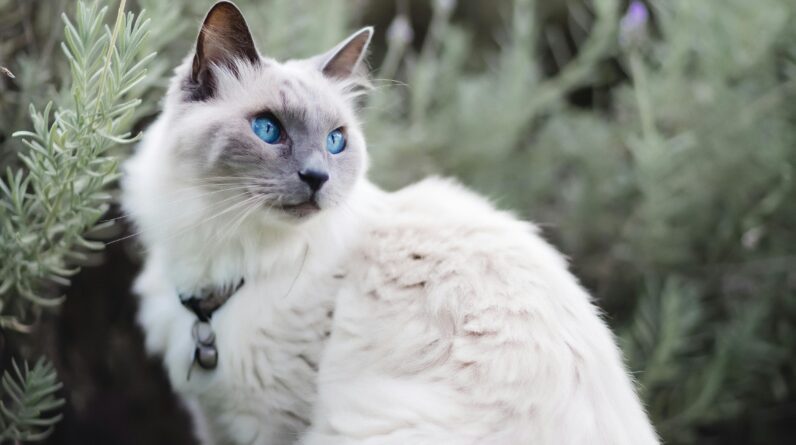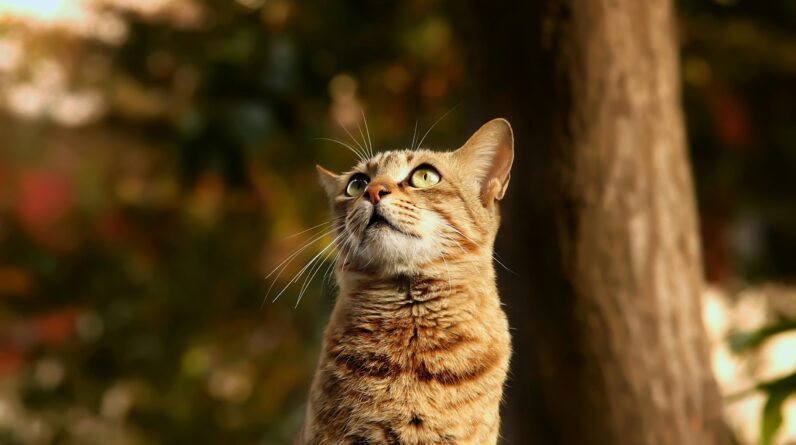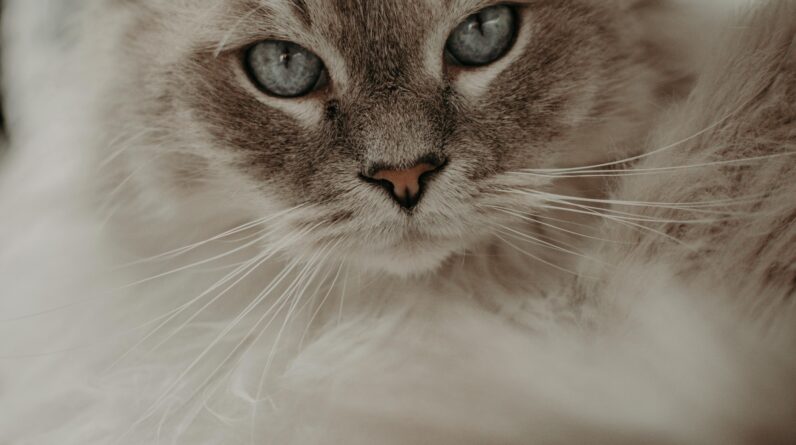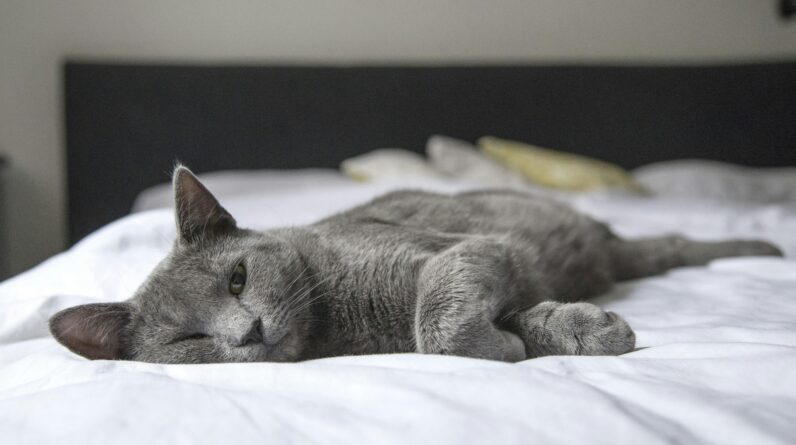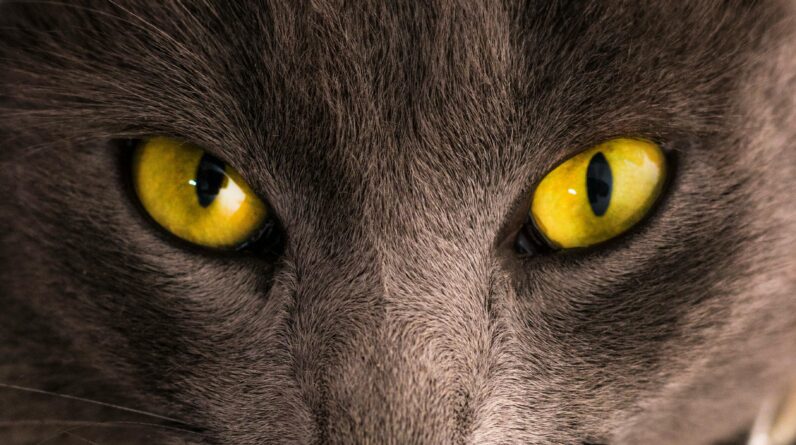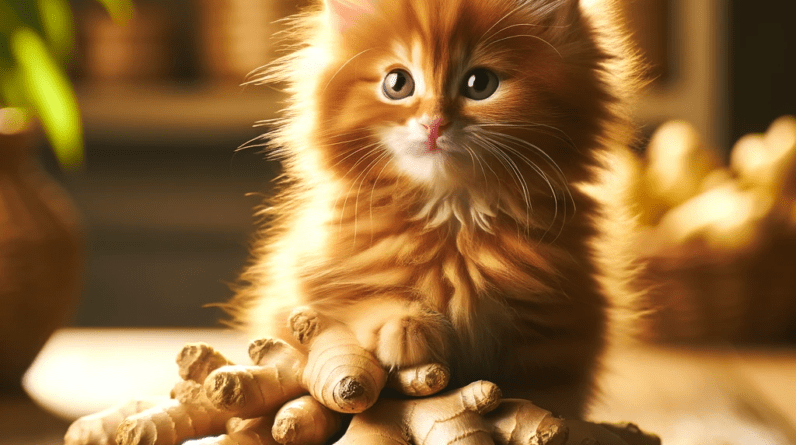
Are you a cat owner curious about spicing up your furry friend’s diet with ginger? You might wonder if this zesty root, known for its health benefits in humans, is also safe for cats.
With pet nutrition being as complex as our own, it’s crucial to ensure we’re not inadvertently causing harm with our food-sharing habits.
Here’s an intriguing fact: some veterinarians suggest that small amounts of ginger can aid in settling a cat’s stomach. This blog post will delve into the nitty-gritty of feeding ginger to your cat.
We’ll explore benefits and risks, address common questions, and provide expert tips on responsible use.
Keep reading to become well-versed in the do’s and don’ts of sharing this spicy treat with your cat companion.
Ready to learn more? Let’s dig in!

Key Takeaways
- Small amounts of ginger can have health benefits for cats, such as aiding digestion and reducing inflammation, but it should be introduced slowly and in moderation to avoid digestive issues.
- Not all forms of ginger are safe for cats; avoid gingerbread, ginger snaps with harmful ingredients like nutmeg or xylitol, and pickled ginger with high sodium content.
- Always consult a veterinarian before adding ginger to your cat’s diet to ensure it is suitable based on their individual health needs and any potential interactions with medications.
What is Ginger and is it Safe for Cats?


Ginger, a flavorful spice, intrigues many cat owners. You wonder, is it safe for your feline friend?.
Nutritional benefits


Ginger boasts several health perks for your feline friends. It’s packed with antioxidants that can boost the immune system and fight off sickness. These compounds help to reduce inflammation, potentially easing joint pain in older cats.
Plus, ginger is known for its digestive benefits. It may soothe upset stomachs and prevent motion sickness during car rides.
Feeding your cat a small amount of ginger might aid digestion and reduce nausea. Keep it moderate; too much could cause issues. If you’re thinking about adding this spice to your pet’s diet, start slow with tiny portions to see how they react before making it a regular treat.
Next up, let’s dive into the safety concerns surrounding cats consuming ginger.
Safety concerns


While ginger boasts several potential health perks for felines, it’s crucial to be aware of possible risks. Just like humans, cats can have individual sensitivities or allergies to specific foods.
Even though ginger is generally safe for cats in small doses, too much can cause stomach upset or other digestive issues. It’s essential to observe your cat after introducing any new food into their diet and watch out for any signs of distress.
In addition, keep in mind that your cat’s size plays a role in how their body handles ginger. Smaller breeds may require even more cautious dosing. Always start with a tiny amount and consult your vet if you’re unsure about the proper portion size for your pet.
Since research on the effects of ginger specifically on cats is limited, erring on the side of caution will help you avoid any unwanted reactions.
How to give ginger to cats


Considering the safety concerns, let’s explore how you can safely give ginger to your cat. It’s important to introduce this new treat with care. Here are some steps you should take:
- Start by consulting your vet to make sure ginger is suitable for your cat.
- Choose fresh ginger root over processed forms for purity and fewer additives.
- Wash the ginger root thoroughly before use.
- Peel the skin from the ginger as it could be tough on your cat’s stomach.
- Grate a small amount of ginger — less than ¼ teaspoon is enough to start.
- Mix the grated ginger into your cat’s food so they can easily digest it.
- Observe your cat closely after giving them ginger for any signs of discomfort or allergic reactions.
- Increase the amount gradually if there are no adverse effects, but keep portions small.
Forms of Ginger That Cats Can Consume


Curious about which ginger forms are feline-friendly? Let’s explore the variety your whiskered pal might encounter.
Ginger root


Imagine you want to give your cat a natural remedy and you’ve thought about ginger root. It’s good news that this spice is often safe for feline friends. Ginger root can aid in digestion and may help soothe your cat’s upset stomach.
Also, it has anti-inflammatory properties, which could benefit older cats with joint pain.
Before mixing ginger into your pet’s diet, keep portions small. A pinch of fresh or powdered ginger root could go a long way. Ensure it’s free from sugars or additives that might harm your kitty.
Always start with tiny amounts to see how your cat reacts and consult your vet beforehand, especially if they’re on medications or have underlying health conditions. Remember, moderation is key when introducing any new food to your pet’s diet.
Ginger flower


Ginger flower, also known as torch ginger, isn’t a common treat for cats. Unlike the root, which has noted digestive benefits, the flower’s impacts are less documented. If you’re contemplating sharing some ginger flower with your feline friend, proceed with caution.
Very little is known about its effects on cats.
Always keep in mind that moderation is key and talk to your vet first. The same rules apply to ginger flowers as to other non-traditional cat foods: introduce them slowly and watch for any adverse reactions.
Your cat’s health comes first; it’s better to be safe than sorry when trying new foods or supplements.
Gingerbread


Considering gingerbread as a treat for your cat? Hold that thought. This holiday favorite is not the best choice for feline friends. Gingerbread often contains nutmeg and cloves, which are toxic to cats.
Moreover, the high sugar content in gingerbread can lead to obesity and dental problems over time.
Instead of sharing your gingerbread with your kitty, keep their health in check with cat-safe alternatives. You might want treats made specifically for cats or even a tiny bit of plain cooked meat as an occasional indulgence.
Always focus on ensuring that any human foods given to pets are safe and appropriate for them.
Ginger snaps


Moving from gingerbread, let’s talk about ginger snaps. These crunchy cookies often contain ground ginger. You may wonder if your feline friend can nibble on these treats. Ginger snaps are usually a no-go for cats, mainly because of the added sugar and fats in them.
Plus, some brands might include chocolate or xylitol, which are toxic to cats.
Keep an eye on your cat around these snacks. Even though the ginger itself isn’t harmful in small quantities, the other ingredients can be unhealthy for them. If you want to share the health benefits of ginger with your kitty, stick to plain cooked or raw ginger in tiny amounts as recommended by a vet.
Always check labels for unsafe additives and keep those spicy cookies out of paw’s reach!
Pickled ginger


Pickled ginger, known for its presence beside sushi, may catch your cat’s attention. It has a unique zing that could intrigue your feline friend. Surprisingly, this tangy treat contains the same beneficial compounds as fresh ginger.
However, moderation is key due to its high salt content and added preservatives.
Now consider how you offer pickled ginger to your cat if you decide it’s safe in small amounts. Ensure it’s free from artificial sweeteners like xylitol which are toxic to cats. Never replace professional veterinary advice with home remedies involving pickled ginger or other forms of this spice.
Always opt for a vet’s guidance before introducing new treats to your pet’s diet, especially ones that come preserved or flavored for human taste buds.
Ginger ale


Ginger ale might seem like a harm-free treat for your fluffy friend, but caution is key. Unlike fresh ginger root, ginger ale often contains added sugars and carbonation which are not ideal for cats.
While the trace amounts of actual ginger in the soda may offer some digestive benefits, the potential harm from sugar outweighs any positives. Also, carbonated beverages could lead to stomach discomfort in cats.
As a cat owner, you’re better off sticking to safer forms of this spicy root if you wish to provide its benefits to your pet. Next on our exploration is whether that spice carries into homemade treats like gingerbread – could it be as festive for felines as it is for us?
Precautions for Feeding Ginger to Cats


Before giving ginger to your cat, always consult with a vet. Many cats can benefit from ginger but moderation is key.
– Start with very small amounts to assess tolerance.
– Avoid feeding ginger to pregnant or nursing cats, as its effects are unknown.
– Monitor your cat for any allergic reactions after eating ginger.
– Do not give sugary treats like gingerbread or cookie snaps that contain ginger.
– Ensure there is no added sodium or spices in any form of ginger you offer.
– Keep pickled ginger and products with artificial sweeteners away from your feline friend.
– Be cautious if your cat has a medical condition; discuss potential interactions with medications they’re taking.
– Freshly grated ginger root is better than processed forms when opting for natural remedies.
– Consider other dietary needs and restrictions before adding new items like ginger into their diet.
Frequently Asked Questions about Cats and Ginger


Frequently Asked Questions about Cats and Ginger.
Curious about giving ginger to your feline friend?
Dive into the FAQs section for quick, reliable answers to common queries on cats and ginger consumption.
Can cats safely eat ginger?


Yes, cats can safely eat ginger in moderation. This spice comes with potential health perks such as aiding digestion and reducing nausea. However, the effects of ginger on felines haven’t been extensively studied.
It’s known that small amounts may benefit their health, but it’s crucial to proceed with caution. Always start with tiny bits when introducing your cat to ginger.
Before adding ginger to your cat’s diet, consult your veterinarian for guidance. They will consider any existing conditions or medications that could interact negatively with ginger.
Remember, each cat is unique and what works for one might not suit another. To avoid digestive upset or allergic reactions, watch closely how your pet responds after consuming this new food item.
What are the benefits of ginger for cats?


Ginger for your cat can be like a cozy blanket on a chilly day. It may help soothe their tummy if they’re feeling nauseous. Just like in humans, ginger works wonders to settle digestive issues in cats.
A small amount could make long car rides or visits to the vet less stressful by reducing their queasiness.
This natural remedy also boasts anti-inflammatory properties which might benefit your furry friend’s joints. If you have an older cat that struggles with arthritis, incorporating ginger into their diet could ease some discomfort.
Always use moderation and consult with your vet first; their guidance ensures your kitty reaps the benefits without any risks.
How much ginger can cats consume?


Cats can enjoy ginger, but moderation is key. Generally, a small amount—about 1/8 teaspoon of fresh grated ginger or a single slice of the root—is enough for your cat to reap health benefits without causing harm.
Always start with even smaller quantities to ensure no adverse reactions occur.
Remember to watch carefully for any signs of discomfort after giving ginger to your cat. Consult with your vet about the best amount for your pet’s size and health condition. Too much could lead to stomach upset or other issues, so stick closely to recommended portions and observe how they respond after consumption.
Is gingerbread safe for cats?
Transitioning from how much ginger your feline can enjoy, let’s turn our attention to gingerbread. While small amounts of pure ginger might be fine for cats, gingerbread is a different story.
This holiday treat typically contains nutmeg and sugar, which are not suitable for your cat’s digestive system. Nutmeg can be particularly harmful as it may cause stomach upset or central nervous system problems in pets.
Gingerbread also often includes other spices and ingredients that could harm your furry friend. For example, the dough usually has butter and fats that are hard for cats to process.
Chocolate chips or xylitol sweeteners found in some recipes are toxic to cats too. It’s best to keep these seasonal goodies out of paw’s reach entirely. Instead, stick with cat-friendly treats formulated specifically for their health and dietary needs.
What should I do if my cat eats gingerbread by accident?
First, don’t panic. Ginger in small amounts won’t typically harm your cat. But gingerbread contains other ingredients like sugar and fat which aren’t good for them. Check the amount your feline friend has consumed.
If they ate only a tiny nibble, they’ll likely be fine, but keep an eye on them for any strange behavior or signs of distress.
Next, call your veterinarian for advice if you observe any unusual symptoms or if they’ve eaten a large piece. Provide details about what was in the gingerbread, especially if it contained toxic substances like xylitol or chocolate.
Your vet can give you specific steps to take and might want to see your cat to ensure their safety.
Other Christmas dishes with ginger
As you prepare festive meals this holiday season, ginger often spices up various Christmas dishes. Gingerbread houses and cookies get the most attention, but don’t forget about ginger-glazed carrots or a zesty ginger marinade for the holiday ham.
Both can be tempting to share with your feline friend, especially as they hover around the kitchen catching all those enticing aromas.
However, keep in mind that these dishes may contain ingredients that aren’t suitable for cats beyond just a hint of ginger. Always check if there are added sugars, fats, or spices that could upset your cat’s stomach before offering even a small sample.
Moving on from festive foods to safety measures is crucial; let’s delve into what precautions to take while feeding ginger to your cat.
Conclusion


Discovering if ginger is good for your feline friend has been quite the adventure. Remember, moderation is key when introducing new treats to your cat’s diet. Wondering about the perfect amount of ginger for your pet? Your vet can provide personalized advice.
Before sharing a ginger snap with your kitty, consider potential allergies and dietary reactions. Keep exploring natural remedies; they might just bring purrs and healthy vibes to your furry companion’s life!


